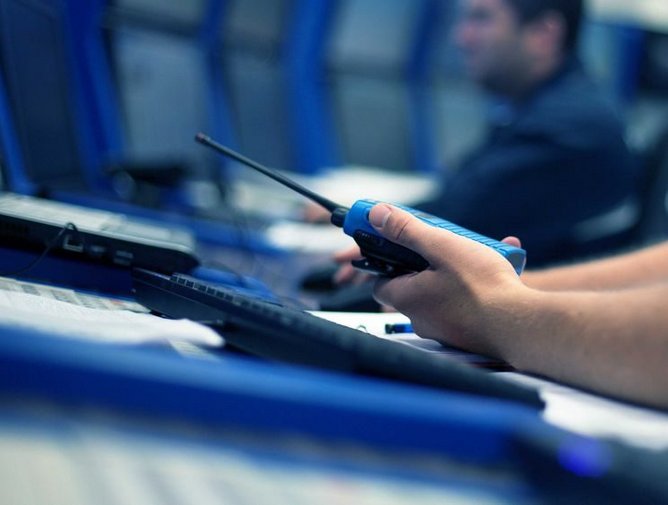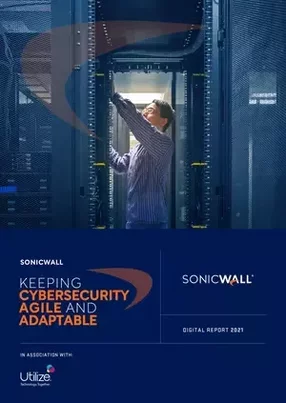Headquartered in Milpitas, California, SonicWall is a Silicon Valley firewall and cybersecurity solutions company originally founded in 1991. Acquired by Dell in 2012 and later sold as a subsidiary to Francisco Partners and Elliott Management in 2016, the company’s history is one punctuated by award-winning innovation, deft stakeholder management and prescient industry development. At a time when the rules for enterprise cybersecurity are being rewritten at an unprecedented rate by remote working and an ever-increasingly digital workplace, these qualities have proven to be invaluable. Fundamentally, SonicWall is a company that believes in embracing change and doesn’t shy away from investing time, money and energy into making it happen.
It was this attitude that first enticed Terry Greer-King, Vice President of SonicWall EMEA, to join. Beginning his career in the semiconductors industry during the late ‘70s, moving through the ‘PC boom’ of the ‘80s, and then finding himself in the cybersecurity arena, Greer-King emphasises that the power of technology to empower, enable and drive change in society is what motivates him. “Cybersecurity has been a growing phenomenon,” he says. “Nowadays, the threats are much more diverse. If you want to establish a security infrastructure and not touch it for five years, you're going to expose yourself to lots of risk. For me, the attraction of cybersecurity is that it's quick, dynamic, interesting and constantly challenging.”
SonicWall is rapidly approaching its 30th year in operation. Despite this, Greer-King states, the temptation to become ‘set in its ways’ is furthest from its mind. Evolving with the times isn’t easy, but it is eminently necessary. “Change is really difficult for a business, much more than you would be led to believe. It’s not just about technology; it's how you approach the market and customers and how you deal with business partners.” To say that COVID-19 has been one of the most significant harbingers of change in cybersecurity is an understatement. In the first months of the Spring 2020 lockdown, SonicWall noted an acceleration in digital awareness and a rapid increase in business. It seemed that enterprise digital transformation journeys that might have been completed over 10 years were instead driven through in weeks. Ultimately, Greer-King reasons, this is because businesses have realised that the ‘new normal’ is here to stay, “Many people don't think we're going to ‘snap back’ to how things were beforehand. I believe the new challenges are going to be constant.”
Indeed, even for a cybersecurity expert like SonicWall, there is no denying that remote working poses some difficult questions requiring solutions on a previously unimagined scale. Less than a decade ago, companies could easily protect their systems through robust firewalls in an office environment. Now, the same uniform protection cannot be guaranteed while employees work from home on potentially unsecured networks. Digital technology’s ubiquitous presence and devices that are connected 24/7 present even more targets for attack from cyber criminals.
“People are and should be part of the solution, as well as part of the problem. What technology can do is mitigate risk and understand it,” says Greer-King. “Using machine learning, SonicWall can operate much quicker and learn at a code level what's bad and what isn't.” Technology’s role at SonicWall could be summarised as ‘pushing security beyond the limits of human ability’. In fact, with its Boundless Cybersecurity strategy, the company can collect data points across 215 countries and apply the aforementioned machine learning or artificial intelligence (AI) algorithms to detect and respond quickly to cyber threats. Capable of actioning these processes in real-time, SonicWall claims to be able to resolve 80% of cyber attacks in less than two seconds.
Greer-King adds that although SonicWall’s investment in technology has been “huge”, there is another highly important aspect to its approach: understanding. The impact of culture on cybersecurity is arguably of a similar magnitude to the purely technical, and successfully communicating the philosophical divergence between previous iterations of security and the modern dynamic is essential. “Previously we sold ‘padlocks’ against viruses, but you can't stop bad guys from doing bad things. What you can do is understand the way your business operates and plan for the future. If you can understand the threats inherent in the way that your business operates, then you can start to prioritise risk.”
The abundance of legacy infrastructure at many companies, even FTSE 100 entities, is unfortunately pervasive and forms a key obstacle for SonicWall to overcome. In purely operational terms, the pandemic has fortunately sent a clear signal that adapting to a new way of working is non-negotiable in modern business. True security, in Greer-King’s view, must be an architectural concern. However, companies often have disparate and inharmonious protection stitched together from multiple sources. SonicWall’s Boundless Cybersecurity combats this problem by providing a suite of consonant solutions that protect every facet of the customer’s digital operations, including secure email, cloud app security, secure remote access, wireless security and more.
SonicWall has been the recipient of several accolades and industry citations for excellence in 2020 alone. Although unquestionably the result of visionary leadership and wise development of core technologies, Greer-King puts forward a different assessment for how the company maintains its innovative output: “What we're trying to do is build empathy with customers. The idea is that we don't want to sit in an ivory tower and muse upon what the right product or solution could be. SonicWall listens to real-world problems and real-world challenges, and therefore develops technology with relevance to the market.”
Who a company partners with can be essential to the product development journey and one of SonicWall’s key collaborators, UK-based tech company Ignite, has distinguished itself from the rest. Greer-King outlines how this managed service provider has been integral throughout the two companies’ shared history and why their relationship is special: “We've been involved in a couple of projects together recently. Ignite’s client base stretches from small-medium businesses to global enterprises. We've been working with Ignite and some of the larger organisations on boundless architecture, future-proofing security and new ways to support customers. Ignite’s solution set is highly cost-effective and helps them protect against contemporary cyber threats; I think the work we’ve done with Ignite is what we aspire to do everywhere.”
The potential for business disruption in 2021 is, according to Greer-King, almost impossible to comprehend. In addition to the ongoing challenge of COVID-19, Brexit, lifestyle changes, shifting markets and new working conditions are all conspiring to make predicting the future of cybersecurity nearly impossible. However, with uncertainty paradoxically the only certainty, SonicWall is embracing the inevitability of change and educating customers on risk’s 21st-century paradigm. The company’s approach acknowledges that no ‘catch-all’ solution could ever solve each client’s unique circumstances and instead embraces agility, variability and genuine leadership. “Leadership is about listening; we should be socially conscious enough to bring others with us. I think the sooner people get on board with cybersecurity, the sooner they'll reap the benefits from it,” Greer-King concludes. “There is a requirement for clear leadership and a clear sense of direction, but it shouldn't be done in an isolated way. It should be done by listening to customers, partners and employees. People can do amazing things if only you’d let them.”




